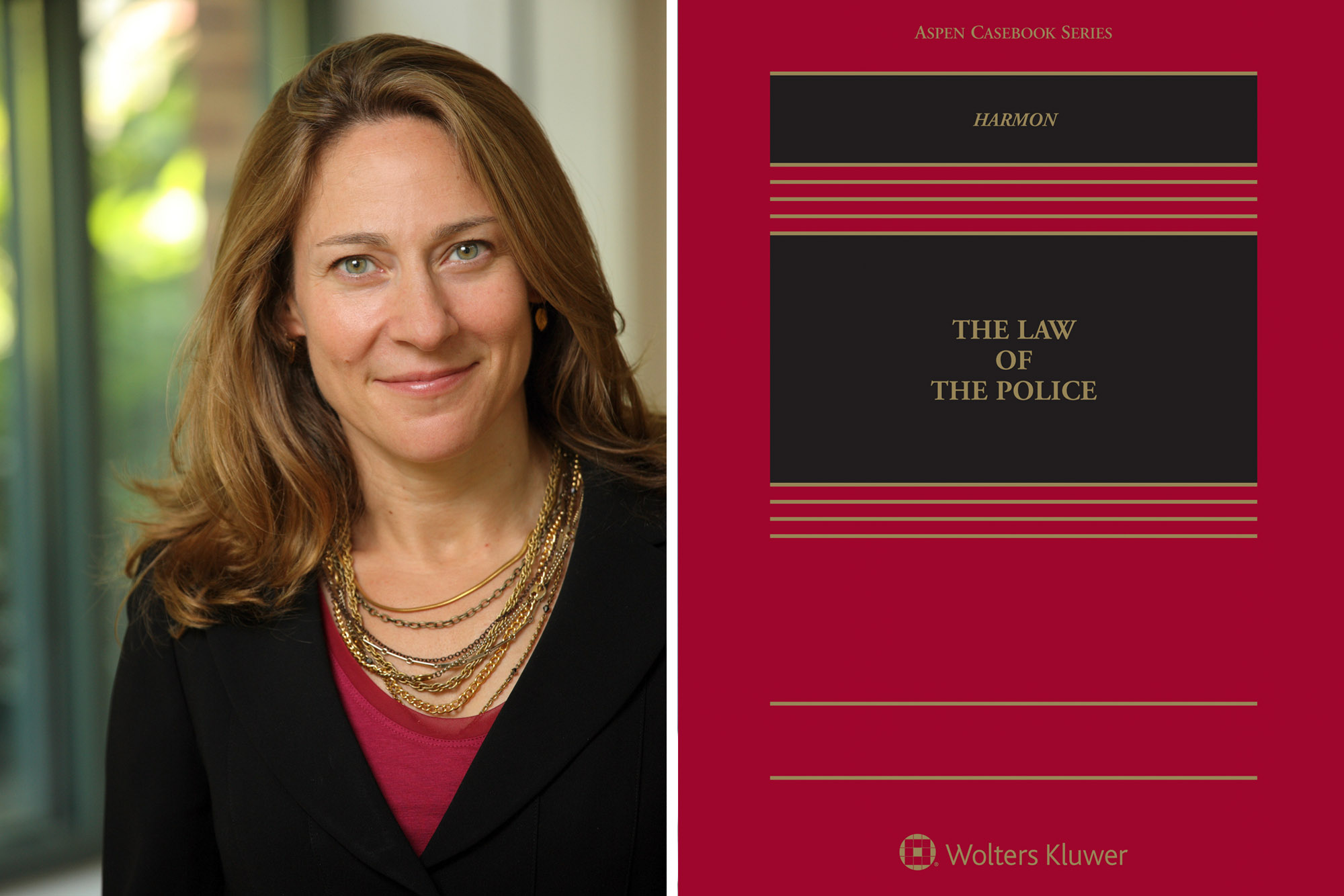As debates about policing pervade the public conversation, professor Rachel Harmon of the University of Virginia School of Law has written the first casebook to look at the laws that govern police conduct in the United States.
“The Law of the Police,” published by Wolters Kluwer, takes on the question of how the law shapes police-citizen encounters and how the law might be leveraged to make policing serve the public better.
Harmon, a former federal prosecutor who directs the Law School’s Center for Criminal Justice, has taught a course on the laws governing police for 15 years. She came to UVA Law in 2006 after spending eight years as a federal prosecutor in the U.S. Department of Justice’s Civil Rights Division.
Throughout her time in academia, she has wrestled with what role, if any, policing should have in people’s lives, and how best to prevent misconduct.
“I came to the Law School from practice, where I spent years prosecuting civil rights cases, including against police officers,” she said. “Over time, I got frustrated with criminal prosecution as a response to police misconduct. Prosecuting illegal police violence can be important, but I knew there had to be better ways to prevent problems in policing.”
Among her goals for the book, she said, was “to look at how different laws and legal rules make policing more or less harmful.”
The book is a reaction to the traditional approach to policing the police, which is rights-focused. For example, a common police practice she considers problematic is selectively asking drivers, based on a gut feeling, to open their trunks during a traffic stop – with all of the officer’s conscious and unconscious biases in tow.
“Lawyers have typically looked at such problems and argued that they violate Fourth Amendment doctrine or, if they don’t, that the doctrine should be changed,” she said. “I see things differently.”
In the evolution of her thoughts, Harmon first looked at how existing rights and remedies might be applied to curb policing that works against the public interest.
“I spent my first couple of years as an academic looking at legal remedies to see whether they could be used to prevent problems in policing and tossing them over my shoulder,” Harmon said. “So civil rights damages actions, is that going to work? No, that’s not going to work a lot of the time. Justice Department investigations of police departments, is that going to work? No, that won’t work well enough either.”










